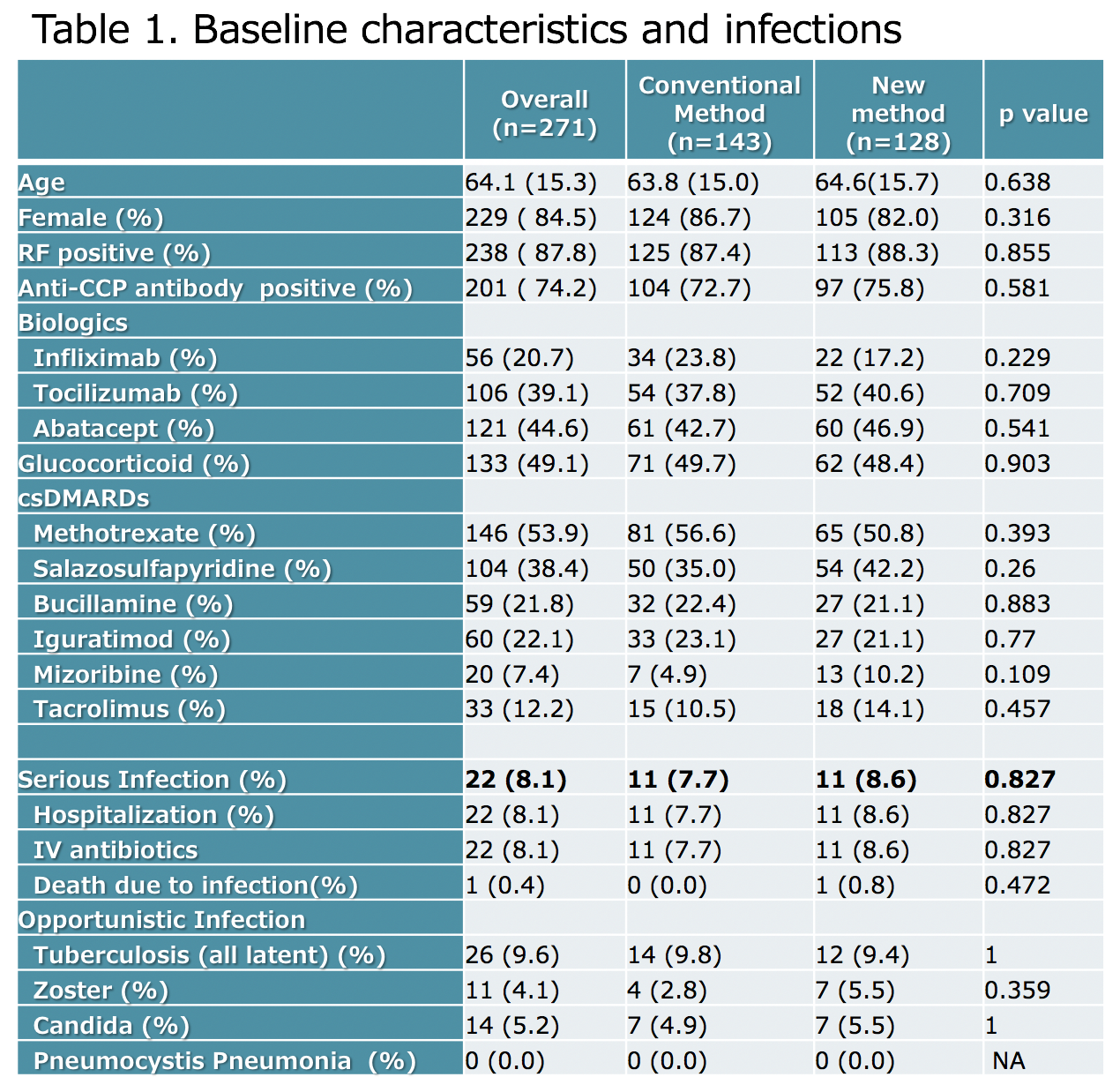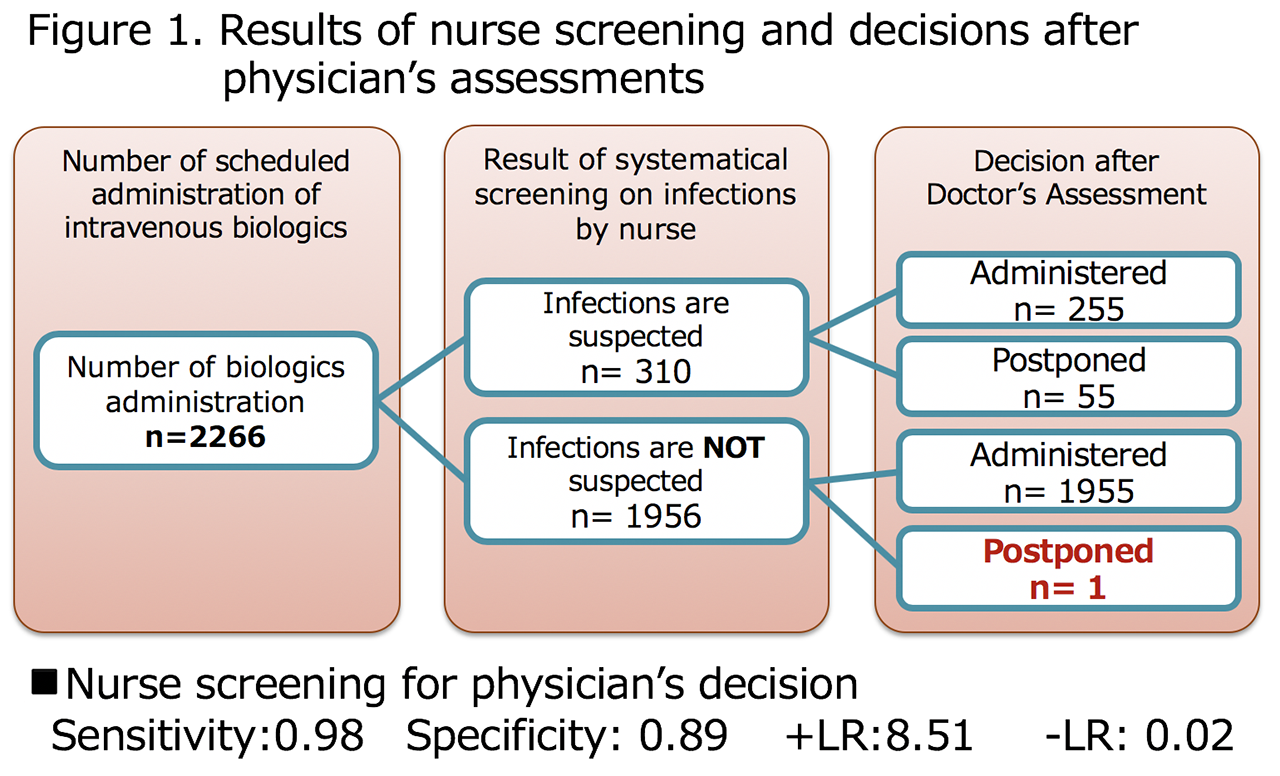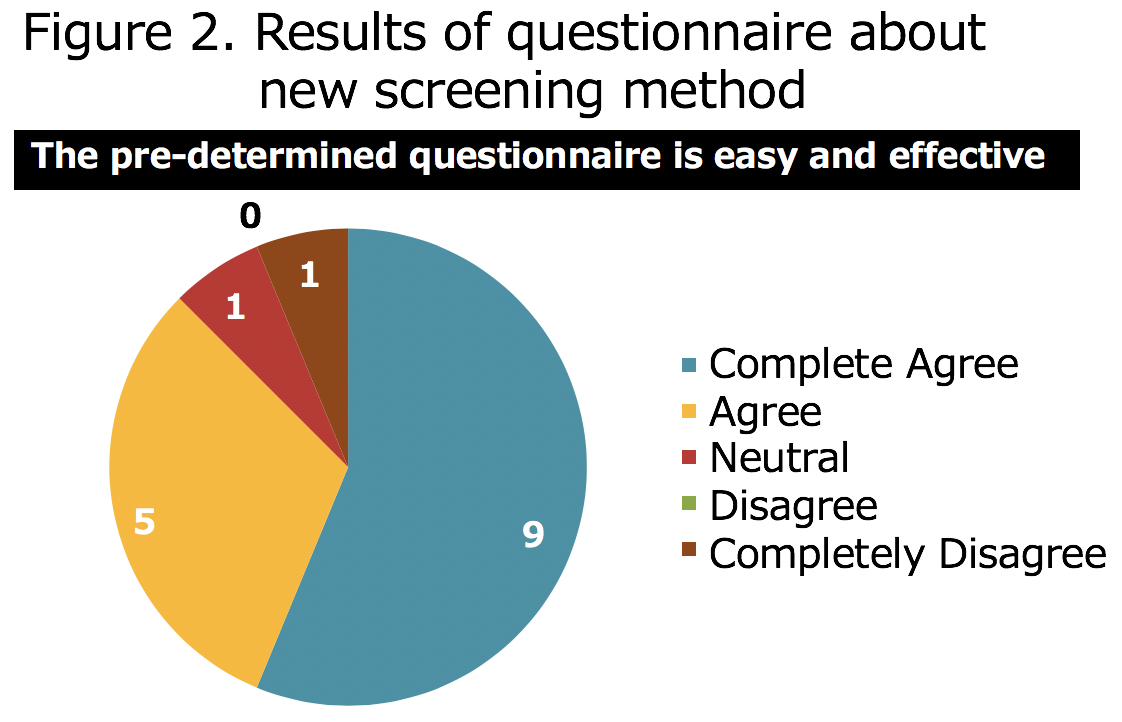Session Information
Session Type: Poster Session (Sunday)
Session Time: 9:00AM-11:00AM
Background/Purpose: Biologics are widely used as treatment for rheumatoid arthritis (RA), and pre-administration screening of active infection is imperative for the safety use. There is no standardized way in the assessment of infection by nurse and it is often difficult and time-consuming. We implemented new method in which nurses systematically use pre-determined questionnaires on infections before doctors examine the patients for confirmation. Our aim of this study is to reveal effectiveness of this new method of assessments.
Methods: We retrospectively reviewed charts of patients with RA who received intravenous biologics at St. Luke’s International Hospital, Tokyo, Japan from January 2016 to April 2019. We investigated basic demographics, kinds of biologics and other treatments, underlying diseases, incidence of serious infection(SI), and opportunistic infections. SI was defined as bacterial infections requiring intravenous antibiotics, hospitalization, or resulting in death. We calculated the number of scheduled administrations and evaluated results of screening by nurse and doctor’s assessment. We compared the number of infections in the new method with those in conventional one. Univariate analysis and Chi-square test were performed. We also asked nurses for their feeling about this new screening method with questionnaire.
Results: We identified 271 cases in total. There are 143 and 128 patients who received intravenous biologics from January 2016 to August 2017 with conventional assessment and from September 2017 to April 2019 with new-style assessment. There are no significant differences in the baseline characteristics and the number of SI between new and conventional methods (7.7% vs 8.6%; p= 0.827)(Table1). New screening method showed high sensitivity (0.98) and specificity (0.89) and there was just 1 case in which doctors postponed biologics even the patient was assessed not to have active infections by nurse (Fig 1). Eighty eight % of nurses answered new method is easy and efficient, and 30% answered time-efficient. (Figure2)
Conclusion: Systematical screening by nurse with pre-determined questionnaires is effective as a screening with high sensitivity and nurses are satisfied with its convenience and time-efficiency. Doctors can carefully see cases in which infections are suspected by nurse. Our new-method of pre-administration assessments can contribute to time-efficient practice without any increasing risk of SI.
To cite this abstract in AMA style:
Furukawa S, Fukui S, Tamaki S, Nakasone T, Okada M. Effectiveness of Screening by Nurse with Predetermined Questionnaire on Infections Before Administration of Intravenous Biologics in Patients with Rheumatoid Arthritis [abstract]. Arthritis Rheumatol. 2019; 71 (suppl 10). https://acrabstracts.org/abstract/effectiveness-of-screening-by-nurse-with-predetermined-questionnaire-on-infections-before-administration-of-intravenous-biologics-in-patients-with-rheumatoid-arthritis/. Accessed .« Back to 2019 ACR/ARP Annual Meeting
ACR Meeting Abstracts - https://acrabstracts.org/abstract/effectiveness-of-screening-by-nurse-with-predetermined-questionnaire-on-infections-before-administration-of-intravenous-biologics-in-patients-with-rheumatoid-arthritis/



